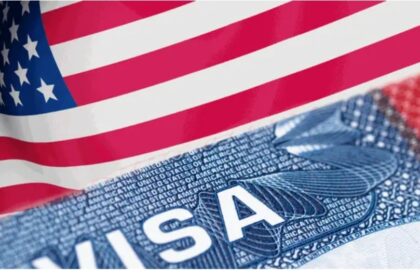The Commissioner of Police, Rivers State Command, Mr. Francis Odesanya, is under fire for his role in the aborted arrest of a judge of the Federal High Court, Port Harcourt, in the early hours of Saturday.
The Rivers State Governor, Chief Nyesom Wike, was said to have rushed to No. 35, Forces Avenue, the GRA official residence of the judge and prevented operatives of the Department of State Services from arresting the judge.
Wike, who was said to have had a confrontation with the DSS officials, was said to have been joined at the scene by the police commissioner.
A highly-placed source, who spoke to our correspondents on condition of anonymity, on Sunday, said preliminary report had shown that Odesanya prevented the security agencies from carrying out a legitimate order.
Based on the report, he said the police authorities as well as the Police Service Commission would sanction the police boss.
He, however, did not disclose the kind of punishment to be meted out to him.
The source stated, “The Rivers Commissioner of Police will be dealt with appropriately. It has been established that the DSS officials who were at the judge’s residence had with them duly signed search and arrest warrants.
“By stopping the security agents from doing their work, what he did was to obstruct justice. He stopped those people from carrying out a legitimate order.
“He will be sanctioned accordingly.”
The Public Relations Officer, Rivers State Command, Mr. Nnamdi Omoni, had told journalists that policemen were only at the judge’s residence to ensure there was no breakdown of law and order.
It was also learnt on Sunday that no fewer than 15 judges across the country were under investigation by the DSS.
It was gathered that the DSS was investigating the judges based on various petitions, which accused them of corruption.
A top Federal Government official, who confided in our correspondent on Sunday, said the 15 judges included seven that were arrested on Friday and Saturday.
The DSS had, in what it called a sting operation, arrested Sylvester Ngwuta and Inyang Okoro, both of the Supreme Court; the suspended Presiding Justice of the Court of Appeal, Ilorin Division, Justice Mohammed Tsamiya; Justice Kabiru Auta of the Kano State High Court and Justice Adeniyi Ademola of the Federal High Court, Abuja.
Other arrested were a former Chief Judge of Enugu State, Justice I. A. Umezulike, and Muazu Pindiga of the Federal High Court, Gombe Division.
It was gathered that besides the judges, the DSS had invited three court registry staff across the country as part of the investigations into the alleged corruption in the judiciary.
“Currently, we are investigation 15 judges, including the seven that were arrested. Three court registry staff have been invited and quizzed. We have facts and figures,” the source stated.
The government official faulted a claim that the DSS acted unilaterally without carrying along the National Judicial Council.
He stated that the Service sent letters to the NJC and the Ministry of Justice concerning the investigations of the judges.
According to him, while the ministry responded, the NJC did not respond, adding that the DSS did not dramatise the arrest of the judges as alleged.
The government official also explained that the fact that the judges were under the authority of the NJC did not exclude them from investigation and prosecution.
He stated, “They have no immunity. Even those (governors), who have immunity, can be investigated. There are many professional groups, including the Nigeria Union of Journalists; if you commit a crime, besides facing disciplinary actions from your union, you should be investigated and prosecuted according to the law of the country.”
The source further explained the constitutional mandate of the DSS, adding that the service had not intervened in what did not concern it by investigating the judges.
Giving an insight into the allegation against some of the judges, he alleged that some of them received bribes to compromise judgments.
He also cited the case of a judge who had a N1.5bn estate, alleging that granting of bails to defendants had been turned into an avenue for making money by some judicial officers.
It was learnt that the government was not happy with way the police handled the investigation into the alleged Senate forgery involving the Senate President, Bukola Saraki, and his deputy, Ike Ekweremadu.



